More often than not, interviews take place in small hotel rooms often filled with people; publicists and PRs, monitoring chats, making sure all goes to plan. As great as it can be to meet the creative forces behind wonderful artistic endeavours it’s hard to not sometimes feel part of the machine, on the conveyor belt that is film journalism. But every so often you get something a little more intimate, and when we interviewed the excellent Tom Cullen about his directorial debut Pink Wall it was in that very environment, for we head to the pub to talk about the inspirations for this brilliant relationship drama, well – that was after we’d got the football chat out the way first. He talks exclusively to Hot Corn about turning 30, his process as a writer/director, and just why he’s so terrified about showing this hugely personal piece of cinema to his close friends and family.
When you have a band releasing a first album you get this impression its a collection of songs that have been with them a long time. Is it like that with a first feature – did it feel like a culmination of ideas you’ve had with you a long time?
No, it wasn’t actually. What’s quite strange about this film is how it came to be, I was offered a job by a producer but I couldn’t do it because of scheduling, and he was trying to tempt me into doing it by saying The Duplass Brothers would be interested in producing it, knowing I’d be triggered because I like mumblecore, American films of that type. I had this soft, one-line idea for a film which was about a couple at a crossroads in their relationship, in their sixth year and they go to Wales for a weekend to thrash out their relationship. With a structure where on Friday they ignore their present, on Saturday they relive their past and on Sunday they look at their future. That was it, that was the idea. I mentioned that and I was asked to write a one-pager. So I was like, cool – but what’s a one-pager? So I went away that night and wrote something and tried to semi-flesh out this idea and I talked a lot of nonsense but made it sound quite poetic and I sent it off. Then I was called back the next day to be told I had a small budget, but I had to shoot it in three months, and I was in between jobs I had a hiatus, so I was like, fuck it. I’m gonna go and do it. So then I went away and thoughts, what is this? Why do I want to make this film? What is it all about? It’s not the number one thing I wanted to make, it just happened to be that it was the opportunity that arose. Turning 30, looking at my relationships, I was really interested in exploring my successes and my failures in a really honest way. I really like romantic dramas, and they’ve been overdone and it’s a really well-trodden path, and they’ve been done really well. I wanted to try and tell this story because I wanted to tell it, but try and do it in a newish way, well, as new as you can do something that has been done so many times.
I’m 31 and I had that turning 30 period recently. It’s an odd thing, because it’s impossible not to get quite self-reflective, and in turn comparing yourself to others, thinking about where you are, where should you be. And our generation is so different to our parents, which is that they had more structure – come out of school, get a job, buy a house and start a family. The economic climate doesn’t allow for that, especially not in London.
But I don’t doubt that our parents didn’t have those same crisis’ either. Those milestones, it’s just a number, but they are weirdly big. Me coming out of my 20s which are inherently egotistical, for me anyway, I didn’t really have a grip on my mortality, I was just doing things and thinking, this is good. I was discovering myself as an adult, you leave home and you’re like – who am I? What am I into? I felt a change around the end of my 20s where I started to feel like I knew myself a bit more, and then I become self-reflective about who I am. The 20s were about pushing boundaries and turning 30 was about figuring out what those boundaries are, what do I like and what don’t I like? Who am I? Making this film was definitely a reflection of me figuring out my boundaries from inside a relationship. Things I’ve done well, things I hadn’t done well, and how I would move forward and be better going into my 30s. Especially as I’m thinking about stuff like having children, that next phase which is huge as you start to imagine another person joining the relationship.
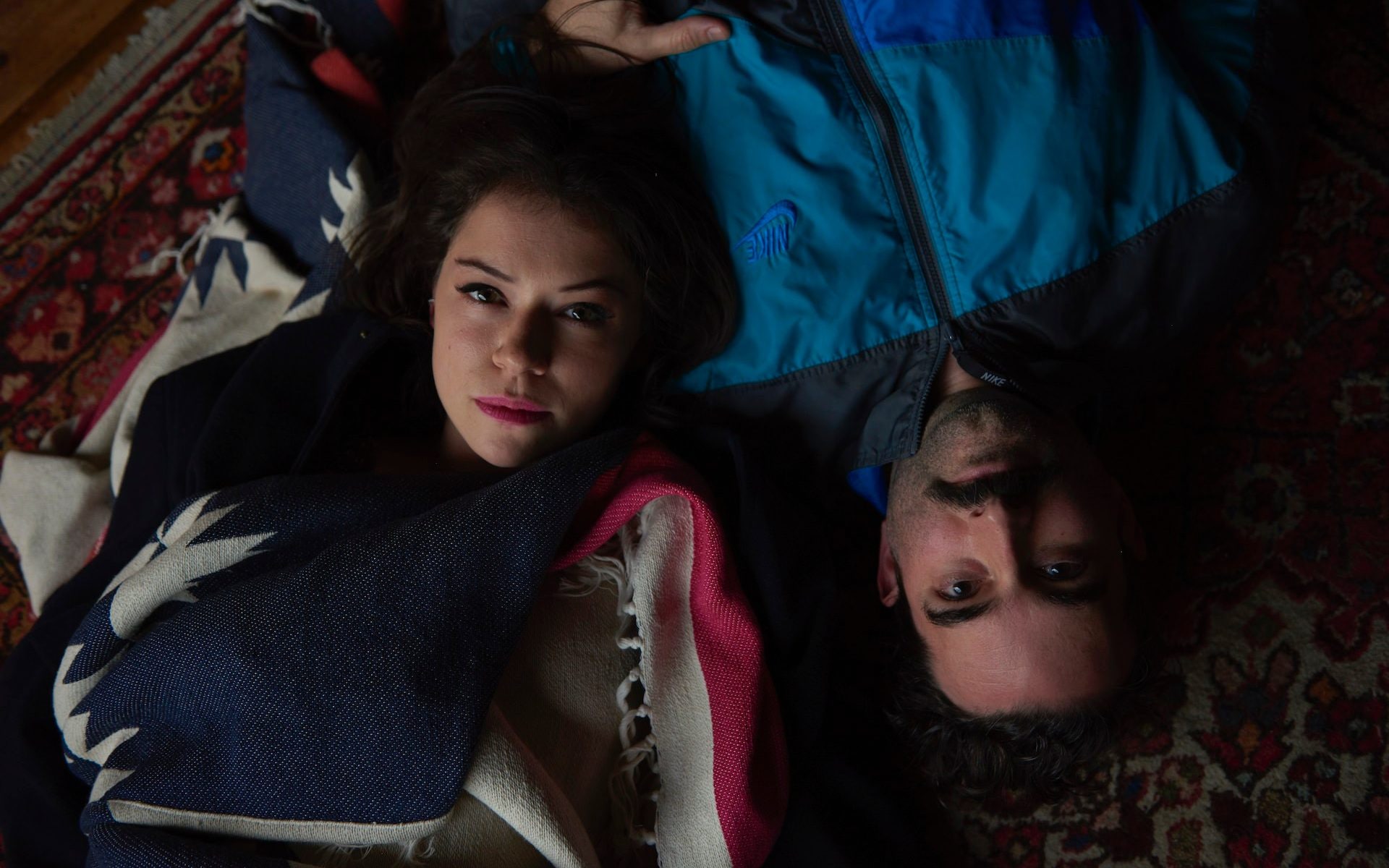
I interviewed Dolly Wells recently who also directed her first feature with Good Posture and she told me about the inspiration she took from working Jamie Adams, who picks up a camera and he just does it, and he gave her a feeling that directing is an accessible thing. You’ve worked with him before too – did that same DIY spirit rub off on you, or are there any filmmakers you’ve worked with that you felt gave you that confidence?
The filmmaker I always reference when it comes to my journey and the filmmaker who made me want to direct is Andrew Haigh, who is a genius and the first director I ever worked with on film. He’s a genius. What struck me so much about him and the way he works is the environment he creates on set in order to garner authentic, and really honest and real performances, he creates real autonomy for the actors whilst actually controlling that environment in a way that you don’t even notice at all as an actor. I was so influenced by him and he made me want to make films. Not that I’ll ever get anywhere near Andrew Haigh, but I was really inspired. Also having worked with bad directors and being quite frustrated, I’d been quite spoilt having worked with Andrew that afterwards I would work with people and think, this isn’t how I would do it. I realised as an actor how I like to work. I’m really inspired also by directors like John Cassavetes and Ken Loach, Godard. How they tell stories and I’m really interested in the relationship between director and writer and actor, the idea of ownership for the actors and how that creates really amazing performances, and I wanted to create a process which was an extension of Andrew, but also of Loach and Mike Leigh, that I felt would be a good process for my actors. That was the thing I was really excited by and so I created my own process. Which felt really fresh and really exciting, for me. I’m not saying it was fresh and nobody has ever done it before, I mean it was fresh for me, it was exciting for me to do.
You mention the Duplass Brothers involvement – when did it become apparent Jay would get involved as an actor? When you wrote the character was it written as an American or was that something that changed as a result of the casting?
So I hadn’t written a word before Jay came on board. How I got Jay is because he’s clearly an idiot, and I’m really lucky he’s such an idiot. I met him in really shitty, red carpet environments where you’re like ‘hey I love your work’. He was a fan of some work I’d done as an actor, especially Weekend with Andrew, so we bumped into each other and he was very kind about me, and as soon as I saw Transparent, this one line idea I had really came alive because I really felt that Tatiana and Jay worked well together, so when I pitched this idea on the phone it was always with Jay in mind. So when I got the funding I was stuck in this awkward position where I then had to approach him having not really known him, like ‘hey dude I’ve just got this funding for my film and the part is going to be written for you’. So I sent him the one-pager and said ‘no pressure’. But we met for a coffee and like I said, he’s an idiot, because he said yes. So that’s how it happened. I then wrote and developed the character with him, and for him.
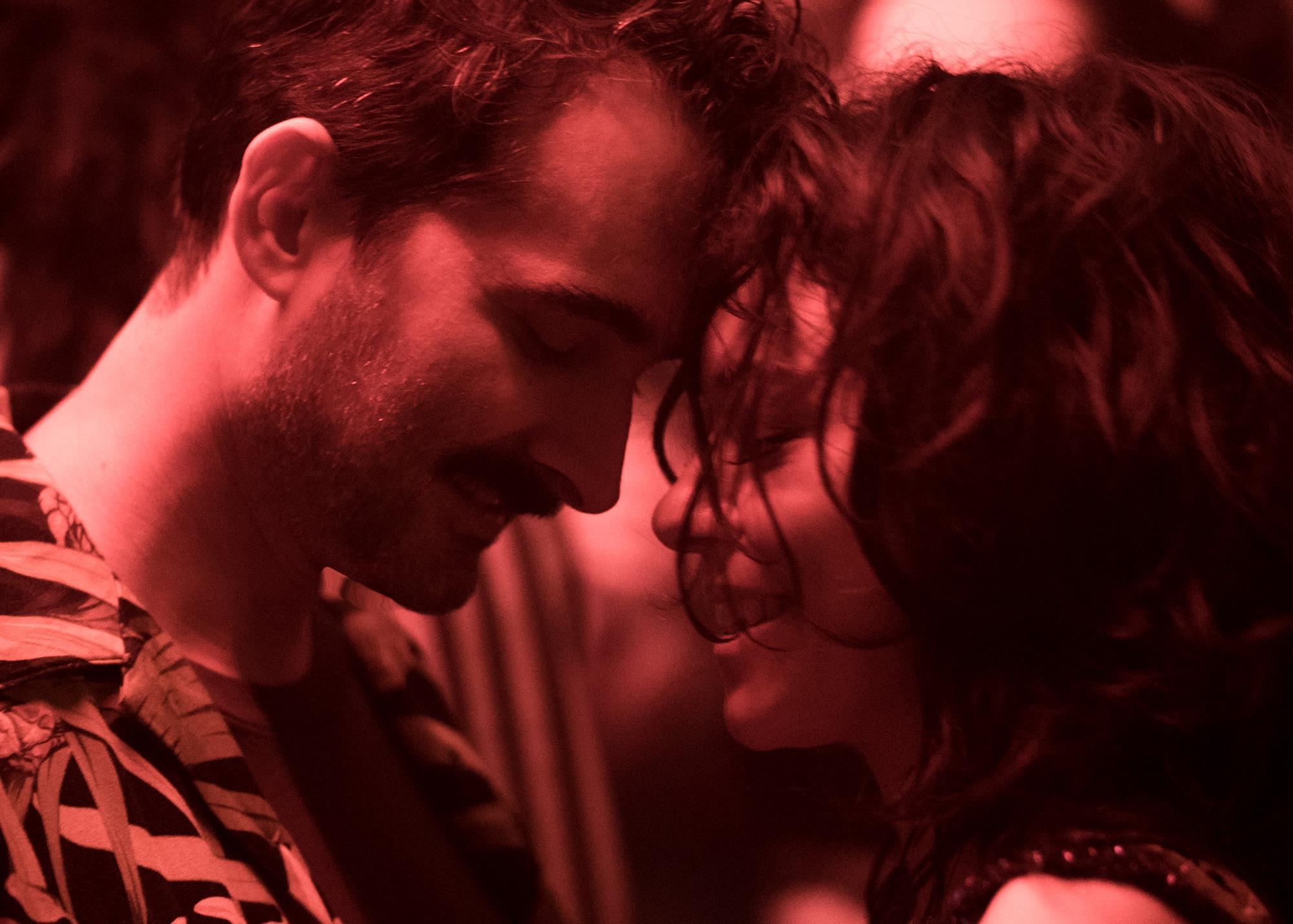
One of the things I liked, and this sounds like a strange thing to compliment you on, is that you weren’t really in it. Because there’s an inclination sometimes for actors-turned-directors to use their first screenplay as a vehicle for themselves to show off their own acting ability. You’ve written this purely to serve the story – but when you envisaged you may write something was there ever a moment where you contemplated playing a character in this?
No. I never wanted to do that. I’m writing my next film and people are really encouraging me to play the part, but I’m not sure if that’s something I ever want to do. I couldn’t imagine directing myself, I really love working with actors and I like being that eye and I love getting good performances. I thin I’d just be too self-conscious. Also directing my first film I really wanted to make sure I was doing the directing side right and not worrying about doing the acting side right, because it definitely would split my brain I think. Having said this now I probably will be in my next film, but to me they are two seperate things and I really love actors, I love working with actors and I really enjoyed being behind the camera and it feels kind of sacred in some ways, so I don’t think I would do it.
Could you see yourself being a writer or director for hire? Or would you always want to do the two together?
I’ve been offered a few scripts since Pink Wall came out in America that have been really, really good actually. A couple that really resonated with me. But at this point in my career I’m still learning my trade and I feel safer telling stories that I know really intimately and telling stories that I want to tell. That doesn’t mean I wouldn’t say yes to something I really understood but I also feel that I don’t want to take somebody’s script on and fuck it up. I’m more okay fucking up my own script.
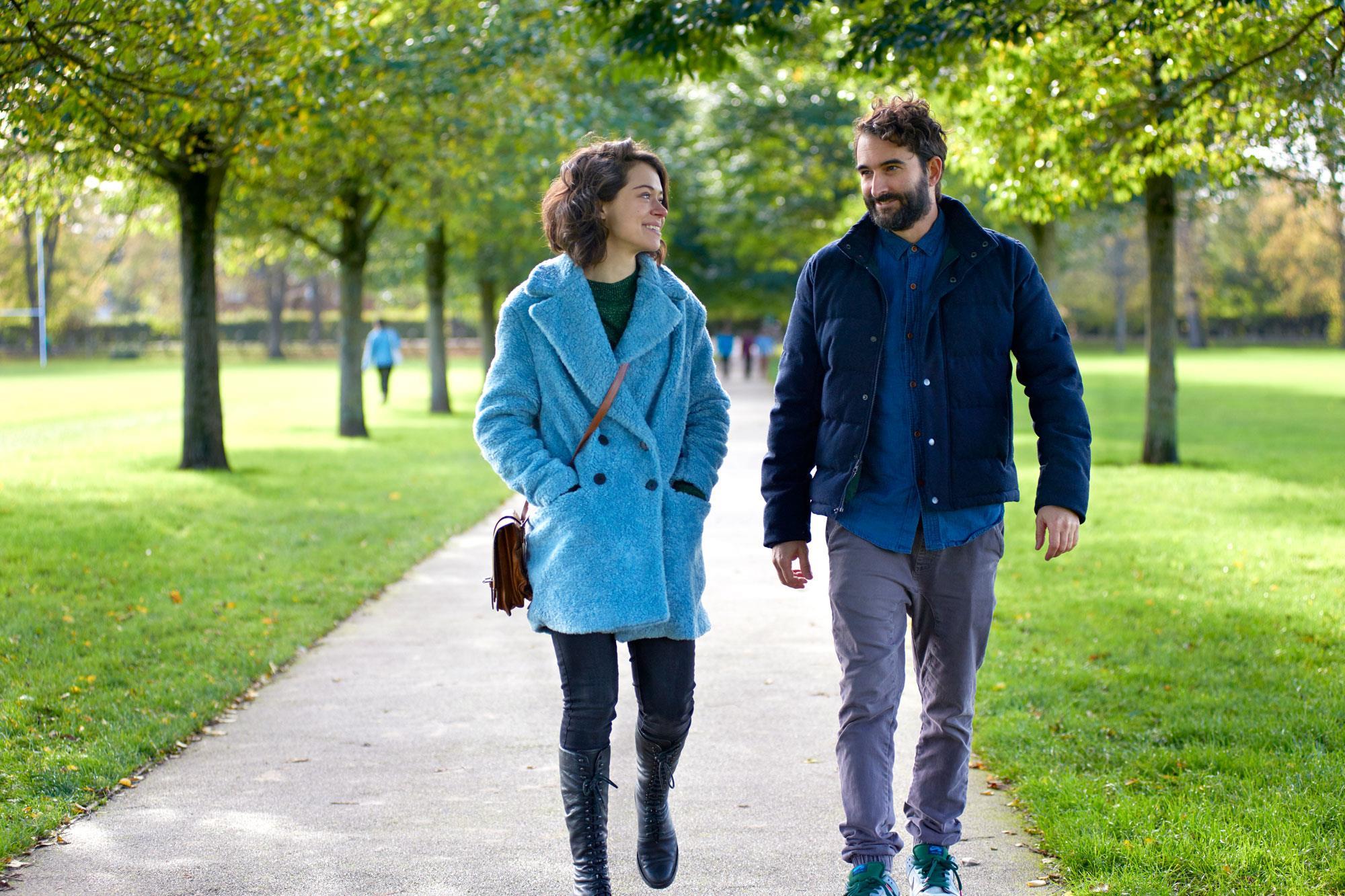
What do you think having American protagonists adds to this story? It’s obviously a take on relationships, that’s the core theme, but there is then the added element of people being in a new environment, people who have moved somewhere and started a new life where they’re on their own. What does that bring to the relationship, and to the story?
It’s interesting having two characters isolated from their familiar surroundings without family, and what that does to someone. When I was writing it I was living in America and I was removed from those familiar things and it put an interesting pressure on the relationship I was in because that my anchor, and my connection to my normality, my life in the UK. But when I originally wrote it, the whole film was set in Wales and I was really interested in the transient of human life. There’s a scene on the mountain top, and they’re surrounded my mountains which have been and will be there forever, but in this moment, this temporary conflict, this temporary relationship exists in this space that feels so fundamental and so important, but actually it will be gone in a few years and never remembered and the mountains will always be there. I like the idea of the transient relationship, they come and they go and human life comes and it goes, and in reflection to the mountains I found that interesting. I found the transience of people who travel from one country to another, and are never fixed, was a nice reflection of the the transience of what I think is human spirit. That is a really wanky answers [laughs]
My wife is a lawyer and the breadwinner in our relationship, and I think this film has a really interesting look at gender roles and expectations. What was it about that as a theme you wanted to explore?
That was the big theme for me really. I wanted to explore, I was interested in flipping those gender roles, because I felt like that was a more honest reflection of the women in my life. I wanted to write and develop a character for her, to have the archetypes that are normally given to men; ambitious, angry, funny, a bit of a dick. But also wild and loving. And for the male protagonist to have those more female archetypes, like wanting to have a kid and settle down. That was definitely a true reflection of a lot of the experiences of myself and also my friends that I’ve never really seen represented. In an exercise type way you can just say ‘oh what I did was I flipped the gender roles’, but it is a truth that I wanted to explore, and I also wanted to allow the male character to explore roles that they don’t necessarily get to feel either, which is in contrast to what is a patriarchal system, which is guys who don’t want to slow down, are ambitious and wanna have families. I’m definitely one of those guys, I can’t wait to have kids, that excites me. But it’s rarely seen and yeah I was interested in exploring that and the gender politics are important to me. What’s funny is that I wrote this two years ago, way before the MeToo movement started, and the world has definitely changed since then, and maybe some of those conversations don’t feel as pertinent as they did when I was writing this two years ago, but I think they still resonate.
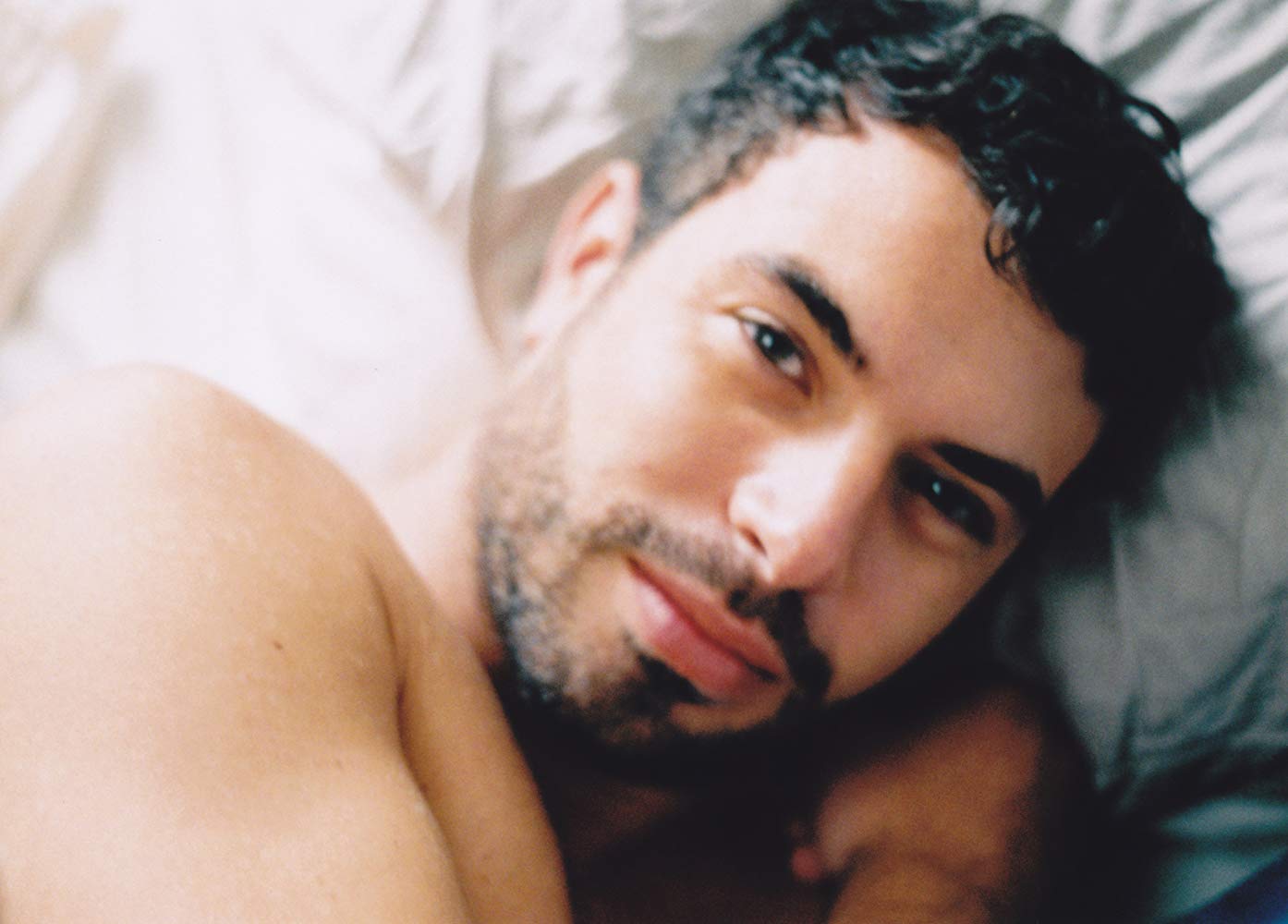
What’s it like showing this film to friends and family, is that nerve-wracking for you?
It is fucking terrifying man! Especially people who have worked on it, honestly, because you don’t wanna feel like you’ve let anyone down. But because the film is quite a raw reflection of me it is very exposing and there is a disassociation with an audience because they don’t know you and they don’t really give a fuck about you, they just want to see the film. But when it’s your friends and your family those things land a bit heavier. I also drew a lot on the people in my life, one of my best friends watched it and there’s a specific scene in the film when Jay’s character struggles with conflict and avoids it, and it leads to a slightly difficult position with his friends, and I wanted to explore that idea of somebody avoiding conflict within a relationship because what it means is that you can’t have an honest conversation about things because there’s always deflection and you can’t get to the root of the problem and it creates issues. Anyway I showed this to my mate and he called me up and he was like ‘dude, that scene, was that about me’. I was like ‘no… yeah it was about me and you, we’re similar’.
Or god forbid an ex-girlfriend watches the movie.
[Laughs] Oh god, yeah…
It thrives on the notion of authenticity and it feels so searingly naturalistic, do you think a high-concept film in you one day? A genre movie perhaps? Or are you naturally drawn to telling stories that are entrenched in reality?
Well actually I feel that sci-fi is sometimes more real than a kitchen sink drama, because through the removing of reality, you’re actually really able to boil down and tell things through metaphor and allegory which I think is often is a truer way of talking about humans. I do have a couple of ideas, I’ve got this one idea about female friendship where there’s an alien invasion. I don’t want to talk too much about it, but I really love sci-fi and I’d love to develop something, but that won’t be for a while.
How has it been going back to acting now? When you’ve worked on a project since Pink Wall do you find your whole relationship with the craft has changed?
Yeah, completely. I was actually really struggling with acting and I was falling out of love with it a little bit, and then I directed and it was just so amazing to see such great actors work, I learnt so much from watching them, I reminded myself why I fell in love with acting in the first place. You can kind of get lost in it all, which I think is the same for anything, too much of something you can lose the perspective of why you loved it in the first place, and going back to acting now has just been fucking joyous. I’m attacking it with a newfound love and a newfound desire to experiment and push my boundaries a little bit. What’s been great about going back to my acting is that I’ve learnt more about my directing and I can’t wait to go and direct a film again. I will definitely never choose one over the other, I will have both of them running in correlation.
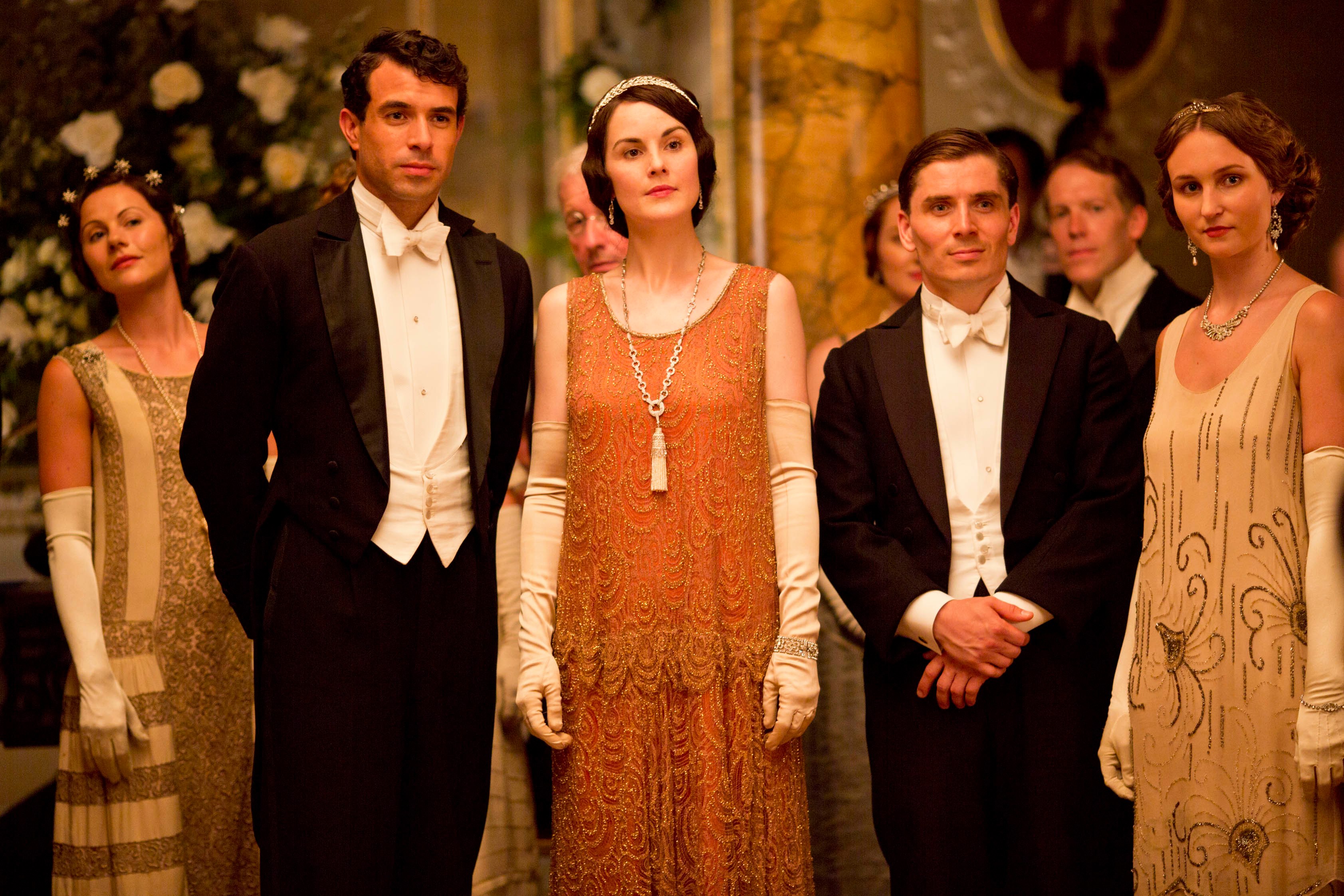
The film moves between time frames, how was the structure of the shoot? Did you try and shoot chronologically? I read somewhere you had to shoot in beard order?
Yeah. The whole shoot was built around Jay’s beard.
Is this where being an actor turned director is helpful, because you’ll see things from an actor’s perspective and you’ll know how you like to work, and by shooting in beard order was there a hidden inclination to try and serve your actors?
If I could’ve I would’ve shot it in sequence, definitely. Anything I’ve ever shot in sequence has been the best performances of everybody, including myself because you get to follow that character’s trajectory. But I think yes definitely my experience being an actor really helped my directing because I think what I learnt from being an actor is the best way to get the best performances is to create an environment for the actors in which they feel absolutely safe, where possibilities are endless and that autonomy that we were talking about that Andrew Haigh gives his actors, that part I knew that I could do. I created this process which I called semi-improvised. The mountain top sequence was scripted but there are some scenes that aren’t, but I had a very fixed shape of the scene and the themes that I want to talk about, the arc of it, the dynamics and the stakes. But what I’d do is I wouldn’t call the crew for a couple of hours and I’d get my actors in in the morning and I’d talk to them about what I want the scene to be and the shape I wanted it to be, to talk through it. I would talk to them about their experiences, but essentially what I’d do is filter through the prism of their experiences what I wanted to talk about. We’d start to talk about similar experiences that they had had or people in their life had had. The I’d get them to improvise a scene and I would direct them in their improvisations and sometimes I’d be like ‘try saying this’ and I’d start to develop the shape of the scene that I wanted, but through their thought and through their voice. It’s fucking great for me, because what I get is the structure of the scene. We’d improvise and continually develop the scene until it was cemented and then I would create these very fixed markers, which might be a line a thought or an action, and in a four minute scene there might be 45 of these. So you have your structured scene and the actor is like a skier, they have to go through all the poles but however wide or narrow they take those corners is up to them, but they have to get there as fast as possible. So it’s great for me because what I get is the structured scene that I want but the best bits of improvisation where the actors are having to inherently think and listen on the line. It really gives it that authentic feel and I knew that as an actor, that’s how I would get really good performances. It also meant I was able to cast my mum, my dad is in it, my sister, my brother, two of my cousins. My producer is in it, and they’re not held from a script but they know exactly where they’re going. That was really fun and that came from experiences as an actor.
You’ve mentioned a couple of projects you’re working on, but is there one that feels like it will be the next one?
I’m writing a film at the moment about masculinity and it’s set in the farming community in Wales, a look at toxic masculinity from a male perspective and how damaging it is. I live in London now but it’s weird I just want to make all of my stuff there, I don’t know why. I left there when I was 12 and whenever I go back there my shoulders drop about an inch. Home is such an interesting concept
and something that I don’t necessarily understand because I’ve lived such a transient life, I’ve moved around all over the place, but when I go back there I really feel like I belong. I actually shot a lot of Pink Wall there, and that’s where my next film will be.

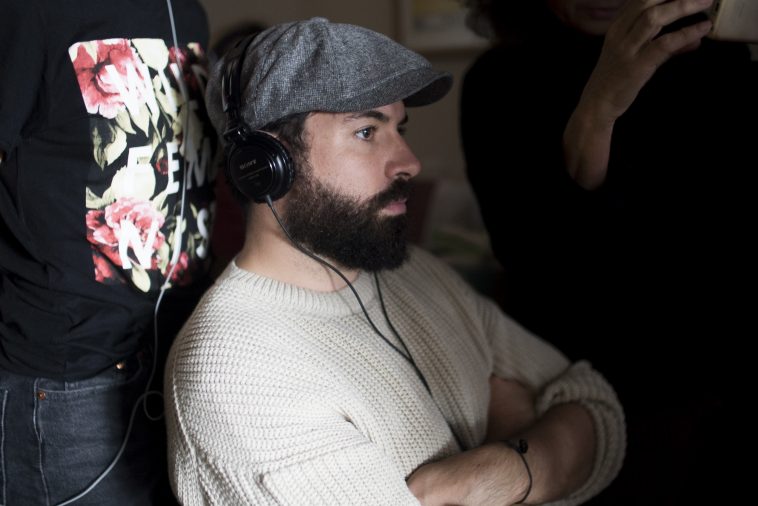


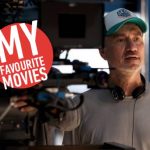


Leave a Comment